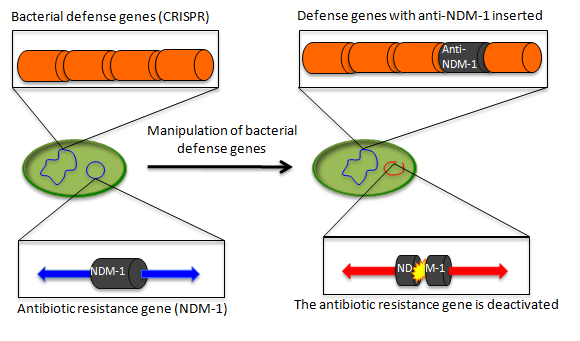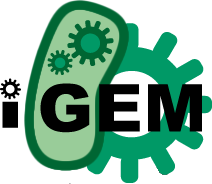Team:Arizona State
From 2011.igem.org
Rubenacuna (Talk | contribs) (added missing spaces) |
Rubenacuna (Talk | contribs) (removed odd character) |
||
| Line 5: | Line 5: | ||
'''What
is
iGEM?
''' | '''What
is
iGEM?
''' | ||
---- | ---- | ||
| - | The International
Genetically
Engineered
Machine
(iGEM)
competition
is
the
premiere
undergraduate
synthetic
biology
competition,
encouraging
students
around
the
world
to
develop
novel
applications
for
genetic
engineering. | + | The International
Genetically
Engineered
Machine
(iGEM)
competition
is
the
premiere
undergraduate
synthetic
biology
competition,
encouraging
students
around
the
world
to
develop
novel
applications
for
genetic
engineering. The
competition
has
grown
from
5
universities
in
2004
to
over
160
universities
in
2011
worldwide.
This
year
iGEM
will
be
holding
a
regional
competition
for
the
Americas
at
the
Institute
for
Biological
Engineering
in
Indianapolis,
where
a
portion
of
contestant
universities
will
move
on
to
the
World
Championship.
The
World
Championship
will
be
held
at
the
Massachusetts
Institute
of
Technology
in
November
2011.
Projects
are
judged
by
their
innovation
and
application
of
gene
networks
to
form
products
with
novel
functions.
Examples
of
past
projects
include
a
H.
pylori
vaccination
candidate,
bacteria
that
solve
sudoku
puzzles,
heavy
metal
detection
using
E.
coli,
and
a
waterborne
parasite
detection
system.
As
ASU's
inaugural
team
we
plan
to
focus
on
NDM‐1
acquired
antibiotic
resistance
and
the
CRISPR‐Cas
pathway.
|
'''Global
Challenge
''' | '''Global
Challenge
''' | ||
Revision as of 19:26, 11 June 2011
Welcome
We are Arizona State University's first iGEM team, working over the summer for the 2011 International Genetically Engineered Machine competition. Our Wiki will be updated as our project progresses, so check back often.
What is iGEM?
The International Genetically Engineered Machine (iGEM) competition is the premiere undergraduate synthetic biology competition, encouraging students around the world to develop novel applications for genetic engineering. The competition has grown from 5 universities in 2004 to over 160 universities in 2011 worldwide. This year iGEM will be holding a regional competition for the Americas at the Institute for Biological Engineering in Indianapolis, where a portion of contestant universities will move on to the World Championship. The World Championship will be held at the Massachusetts Institute of Technology in November 2011. Projects are judged by their innovation and application of gene networks to form products with novel functions. Examples of past projects include a H. pylori vaccination candidate, bacteria that solve sudoku puzzles, heavy metal detection using E. coli, and a waterborne parasite detection system. As ASU's inaugural team we plan to focus on NDM‐1 acquired antibiotic resistance and the CRISPR‐Cas pathway.
Global Challenge
The WHO and CDC consider antibiotic resistance to be one of the most pressing global health threats, compromising the effectiveness of our most important tool in fighting bacterial infection. NDM‐1 allows bacteria to be resistant to a broad range of commonly used antibiotics and has spread rapidly from India and Pakistan through out the world. Alternative solutions must be promptly and intelligently employed to counter this threat.
Bacterial Immunity
CRISPR functions as a bacterial immune system by incorporating and targeting foreign genetic elements. The modularity of this system presents the opportunity for unique applications. Our innovative solution uses CRISPR to silence the NDM‐1 gene, consequently developing a new method that can be utilized for many novel gene manipulations in bacteria. This project combats an important global issue with cutting‐edge science. As Arizona State University’s first iGEM team, we have chosen an ambitious project that has great potential to advance the field of synthetic biology, bringing an international spotlight to ASU and the Phoenix community.
 "
"

